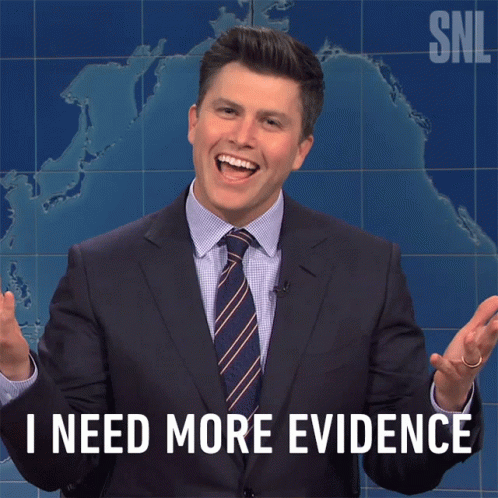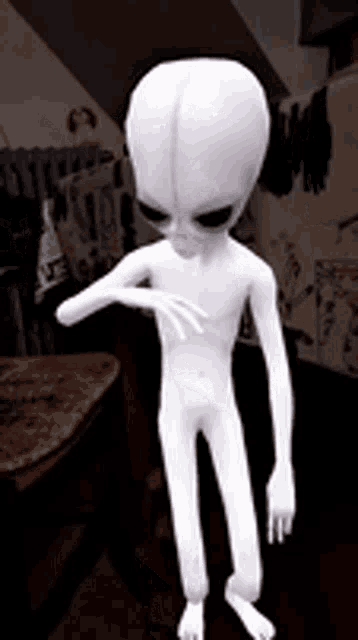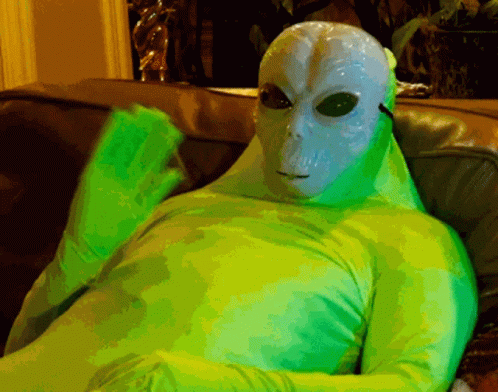So... I Spent The Whole Night In a Weird TikTok Rabbit Hole 👀
I ended up on the wrong side of TikTok at 3a.m. And these are what my eyes saw 👀
So, picture this: it's 3 a.m., the good people of the world are asleep, the wicked ones are awake 👀. And there I am, wide awake, with my phone on full brightness an inch away from my retina - and no, I’m not wicked, or maybe I am, but that’s not why I’m awake.
You see… TikTok is one of those apps that I try to avoid. Not because it’s bad but rather because it’s too good with its mischievous algorithm.
Opening TikTok is like falling into a rabbit hole, except this rabbit hole is filled with videos, each one more entertaining than the last. The algorithm is so damn good that it knows exactly what you want to see before you even know it yourself.
Now, back to the picture… It’s midnight, and I have been in this TikTok rabbit hole for the past three hours, going from video to video. Every video is related to the previous one, and at the same time, every video falls under the same weird subject, “strange and interesting theories about life”.
Now, was the sleep deprivation worth it? For sure! And today is Sunday anyway; what’s the worst that can happen?
Safe to say, I learned a lot… A lot more than I thought but a lot less than I wanted. And, as a personal policy, when I see something interesting and want to understand it more, I choose to write about it. Because writing about a topic forces you to dive deeper into it.
So here you have it: some interesting weird fun theories about life (at least, this life we know of 😖).
1. Eternal Oblivion
We all have different theories about what happens after someone dies. However, certain philosophical perspectives, such as nihilism, propose that consciousness ceases to exist after death. From this POV, there is no afterlife or continuation of oneself beyond biological death.
That is to say, once a person dies, they see nothing, they hear nothing, they know nothing, they go nowhere, and they have no consciousness. It just goes blank, suddenly, and forever.
💡 Tip: Don’t think about this too much; it’s too dark. Just move on.
2. Cunningham's Law
This proposes that the best way to get the right answer on the internet is not to ask the right question but to post the wrong answer. This is because people are more interested in criticising others than helping them.
Which I kinda agree with, because it sounds familiar.
For instance, if you want to ask a question on Nairaland or StackOverflow and you want a quick answer; ask the question using one account; people might ignore you for longer than you want. But if you use another account to respond with a wrong answer, people will pour in with the right answers just to correct the wrong answer.
3. The Attention Economy
This idea proposes that human attention has become a scarce commodity in this digital age because we exist in an environment overflowing with information and distractions.
It’s like going to a local market. Everyone is shouting at the top of their voice just to get your attention, calling out to you with enticing offers and even calling you “handsome boy” when they clearly know you’re nowhere near handsome.
In other words, how relevant you are in the digital age is directly influenced by how much attention you can garner, regardless of how you get the attention. Bad news for people who don’t like any form of attention… bad news for me.
4. The Theory of General Artificial Intelligence
This theory explores the possibility of creating artificial systems that possess general intelligence comparable to or surpassing that of humans.
I saw an interview the other day where Elon Musk mentioned that there might be significant job scarcity in the future and the government of the world will be forced to pay a universal basic income enough for people to survive because… there actually won’t be enough jobs.
5. The Lindy Effect
This suggests that the value of perishable things, like food, decreases with age, and that of non-perishable things, like ideas, increases with age. This means the longer a non-perishable item has been around, the longer it's likely to persist into the future.
In simple words, the ideas that are most likely to exist 1,000 years from now are those that have already existed for 1,000 years.
6. Fredkin's Paradox
This suggests that the more similar two options are, the more difficult it is to decide between them. Meanwhile, whichever choice is selected between the two won’t make much difference. This explains why we spend the most time on the least important decisions.
Look at it this way: You will spend much more time deciding between a Honda and a Toyota than you will spend deciding between a Honda and a Bentley.
So, in sales and pricing, businesses try not to make pricing options too similar or close in terms of features. Otherwise, customers will spend more time comparing the features, benefits, and prices, which could potentially lead to decision fatigue until they give up entirely.
7. Confirmation Bias
This suggests that we demand extraordinarily strong evidence for ideas that do not align with our beliefs while accepting extraordinarily weak evidence for ideas that do.
Let’s say there are two politicians, A and B. If you support Politician A and someone says something positive about Politician A, you agree, even without evidence. But if someone says something positive about Politician B, you ask them for evidence, and even when they bring evidence, you can still disagree 🤣
8. Solipsism
This states that there’s no way to prove that anyone other than yourself actually exists. It is the belief that only your own mind is sure to exist, and everything else, including other people and the world around you, might be just illusions or creations of your mind.
This is dumb, though. It’s like “main character syndrome taken too far”. Because I can prove you exist by punching you in the face. A non-existing entity cannot experience physical pain. Also, if I’m the only one existing, who am I paying these bills to, huh? 😒
9. Simulation Hypothesis
This proposes the idea that our reality is actually a computer simulation. According to this hypothesis, advanced civilisations (aliens*) could create simulations indistinguishable from reality, and therefore, we might be living in one.
That is to say, it’s possible that some five-eyed alien in an unknown galaxy created a hyper-realistic computer simulation known as ‘earth’, which is what we perceive as reality. Meanwhile, we are just characters in an alien’s gaming console. So how great your life is depends on the alien handling your character. If so, mine better keep its head in the game 😐
10. Ambiguity Aversion Theory
This states that people always prefer known risks to unknown risks.
In other words, if you have a 60-second countdown at a street light, it’s more preferred than putting no countdown, even if the time for ‘no countdown’ is 30 seconds.
Because humans are more bothered about the uncertainty of a wait than the duration. This is also why delivery apps put an estimated time of arrival, so you don’t bombard them with calls, out of anxiety.
So there we have it, some of my 3 a.m. findings. If it all sounds interesting to you, feel free to embrace the curiosity and do some more digging.
And hey, if you ever wonder whether we're all just characters in an alien's video game, just keep living your best life. Who knows? Maybe your alien gamer is rooting for you to ace this crazy game called existence. Or.... maybe your alien gamer is just an idiot.








